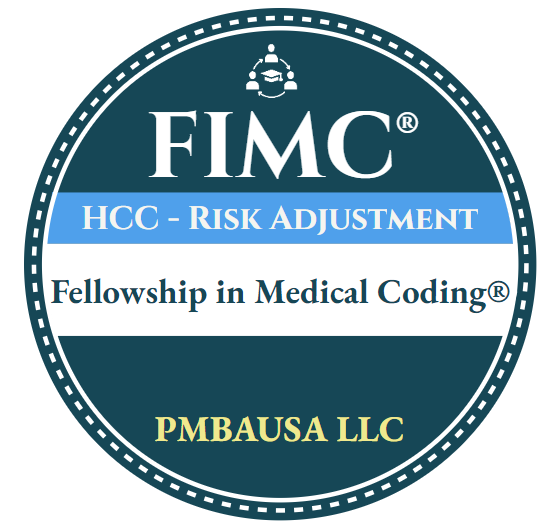FIMC-HCC Coding and Credential: Elevate Your Career in HCC Risk Adjustment Coding
The FIMC-HCC Fellowship in HCC Coding is meticulously designed to provide medical coders and healthcare professionals with advanced expertise in Hierarchical Condition Category (HCC) coding and Risk Adjustment. As healthcare systems increasingly rely on risk adjustment models to predict patient care needs and optimize reimbursements, the demand for skilled professionals trained in HCC coding continues to grow. This course offers a comprehensive curriculum that covers essential aspects of HCC coding, from understanding risk adjustment methodologies to mastering the intricacies of calculating Risk Adjustment Factor (RAF) scores.
The curriculum provides an in-depth foundation for navigating HCC coding models such as CMS-HCCs, ESRD HCCs, PACE HCCs, and HHS-HCCs. It also covers the process of mapping diagnoses to HCC categories, ensuring accurate coding for chronic conditions like diabetes, heart disease, and cancer, which impact RAF scores. Participants will learn how to integrate these coding practices into real-world healthcare settings, helping providers deliver personalized care and optimize reimbursement models through risk adjustment.
A unique highlight of the FIMC-HCC Fellowship is the online flexibility it offers. The self-paced course allows you to work through the material at your own convenience, with all resources available through a secure Learning Management System (LMS). Interactive knowledge checks and a final assessment ensure mastery of the content, making sure you are well-prepared for external HCC audits and regulatory compliance requirements.
Upon completing the FIMC-HCC Fellowship, you will receive a prestigious credential that validates your advanced training in HCC coding and risk adjustment. This globally recognized certification positions you as an expert in the field, ready to take on the challenges of the evolving healthcare landscape. The flexible structure allows you to enhance your career prospects while balancing your professional and personal commitments, making this an ideal program for certified medical coders seeking to specialize in HCC coding.
In today's healthcare environment, where the focus is shifting towards value-based care, HCC coding is more important than ever. The FIMC-HCC Fellowship equips you with the critical knowledge and skills needed to excel in this high-demand field. By becoming proficient in HCC coding and risk adjustment, you will play a vital role in improving patient care outcomes, optimizing provider reimbursements, and ensuring compliance with regulatory standards.




